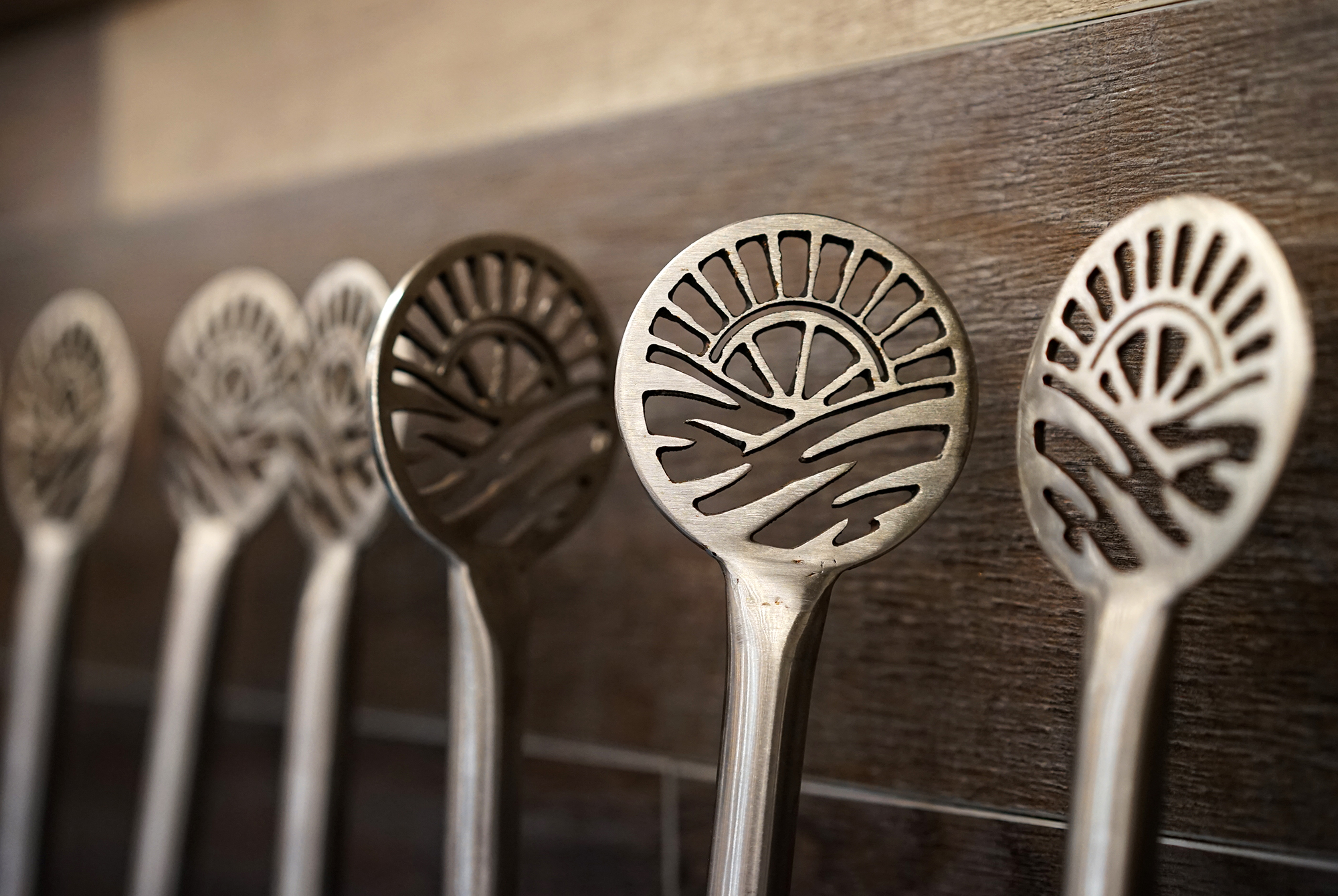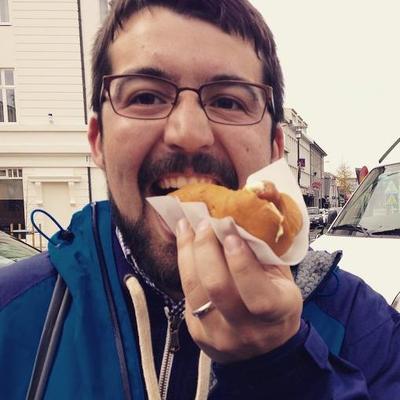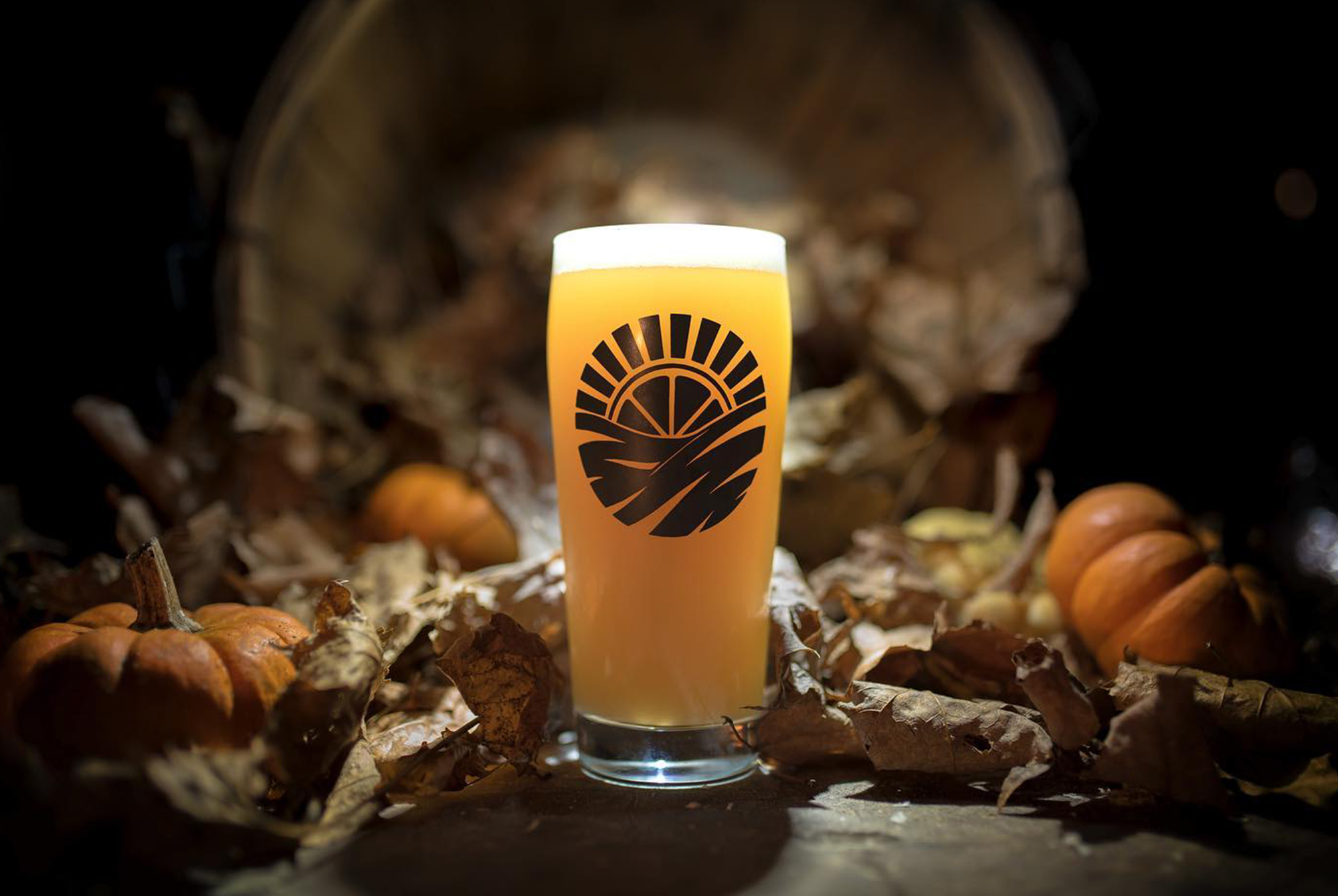Shop
How Vitamin Sea Brewing Became the Best Brewery of 2019
Vitamin Sea Brewing was our top brewery of 2019. Here's their story.
I first met Dino Funari, founder of Vitamin Sea Brewing, at the 2016 Copenhagen Beer Fest, long before he and his team—including his partners and co-founders Peter Kiley, Joshua Sherman, and Richard DiBona—put down roots on Massachusetts’ South Shore and opened the doors of their brewery in Weymouth. We were waiting in line to order food at the festival. We got to chatting. He bought me a waffle. It was maybe the best waffle I’ve ever had. I still have a photo. More importantly, I have a fun story that I never get tired of sharing.
Funari, it turns out, is a man full of stories. Resting on a shelf high on the brewery’s wall is a cooler, the one he kept his beer in at his house when he brewed his beer at home and gave it to friends, family, and tangential connections; the cooler is a permanent part of the Vitamin Sea mythos. People who’ve known Funari since the early aughts come by the brewery today and wax nostalgic about the cooler, a plastic and hard foam memory of the DIY pleasures of making beer in one’s basement. It’s almost as integral to Vitamin Sea’s brand as the beer itself.
The beer, of course, is one of the reasons why Funari and his brewery have such a loyal following, and why Hop Culture named Vitamin Sea 2019’s best brewery. Velvety IPAs, lush fruited sours, and roasty, decadent stouts have helped Funari build his brewery’s name, served alongside cream ales and other alternate offerings to satisfy all palates. Boundaries in the craft beer world are there for a reason, but they’re also meant to be expanded, and whether through their hop profiles or adjunct ingredients, Vitamin Sea stretches those boundaries until they snap.
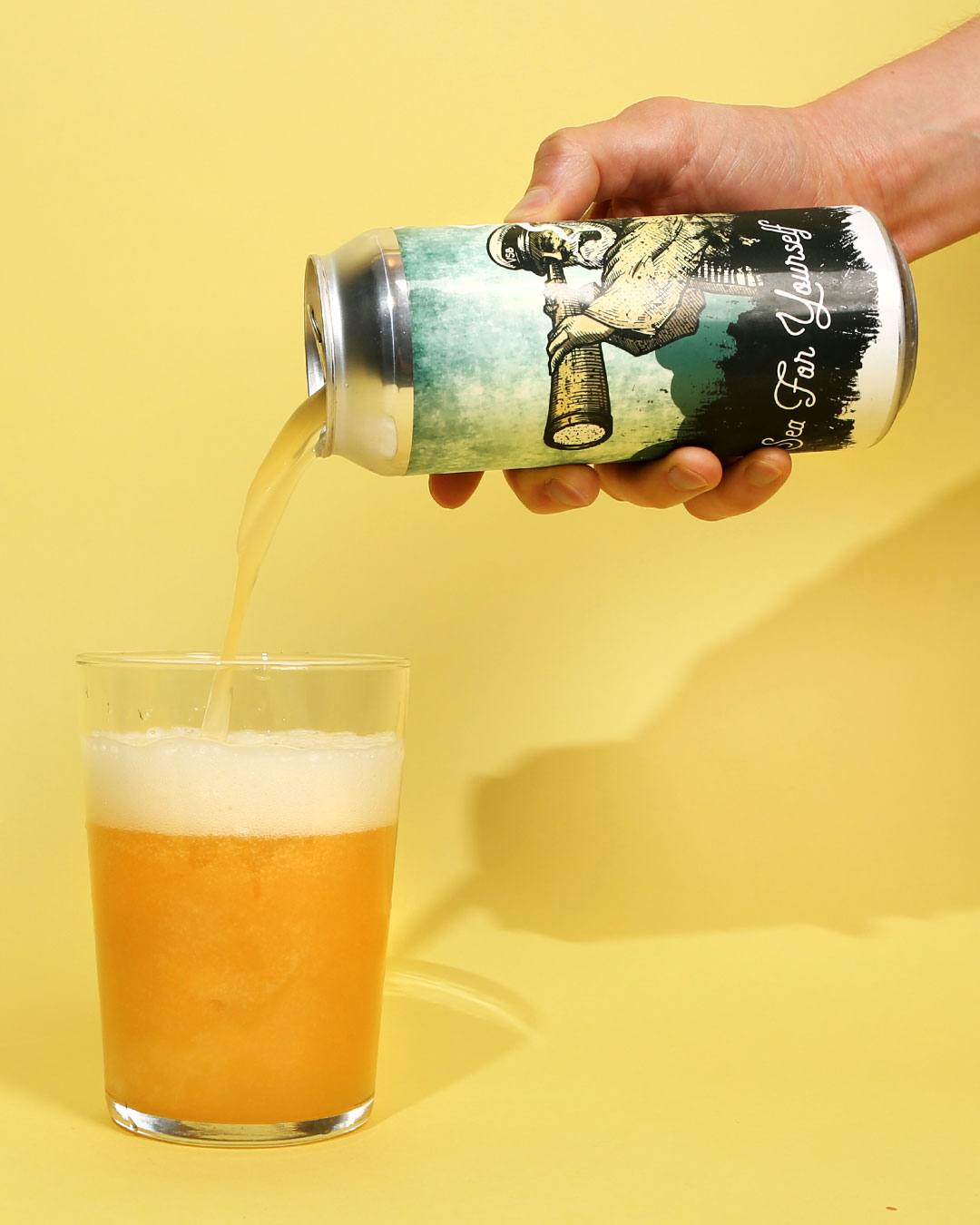
Photo by John A. Paradiso
But, the reason Vitamin Sea is on anyone’s radar and why Funari and his team endeared themselves to just about everyone in the industry is the work. Funari has put in the effort traveling, collaborating, learning, improving, excelling over the last few years–even before Vitamin Sea opened its doors to the public. Vitamin Sea brews excellent beers, but the character of the brewery team is what makes the South Shore brewery one of the best in the country.
I drove out to Weymouth just before the turn of the year to catch up with Funari on his whirlwind 2019, and where he, his crew, and Vitamin Sea will go in 2020: On the road, for certain, with more festivals and collabs on the calendar, and they’re planning to add more hours of operation as they produce more beer. From there, the ocean’s the limit.
Andy Crump: I remember, when we were in line chatting [at Copenhagen Beer Festival ‘16], you talked about how you were going to open up your own brewery. That was a long time ago. So it’s been quite a road for you.
Dino Funari: Boy, that was a lifetime ago. I think back then, we were still hoping to open up in Hull, and we were probably just in the early stages of trying to find a space and write a business plan and all that. I think we probably already had the vision, but a lot’s changed, obviously, since then. We’re here in Weymouth now, probably four potential properties later, and almost a year of build-out and getting everything set up. So yeah, it’s been quite a ride.
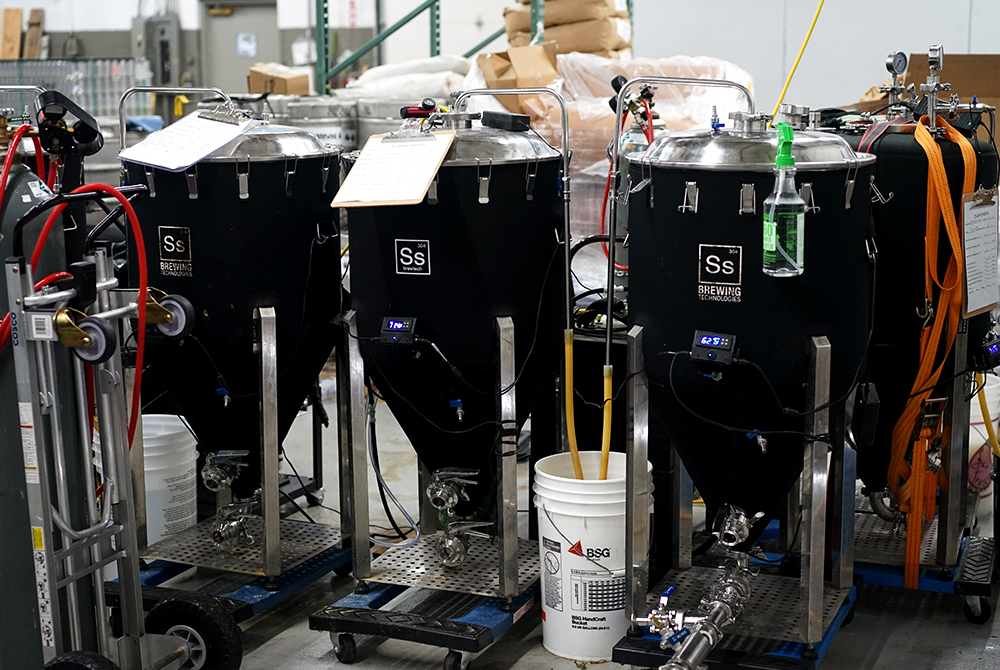
AC: You would think that it’d be easier because this is one of the more successful niche industries in the state. It feels like pretty much every town around here has a brewery.
DF: I think it’s the ones that have town management with progressive thinking. Weymouth already had a brewery, Barrel House Z, a couple of doors down. They were kind of the pioneers here, so they softened the town a little bit and made it easier for us. The mayor of this town, Bob Hedlund, is very pro-brewery. He and us, and the other breweries that are in town—there’s a third one as well, Article 15—we would love to have more breweries here to make it become more of a craft beer destination.
What happened–what we ran into–was that when we originally looked at Hull, they were pro-brewery, if you will, but that was about the extent of it. We just couldn’t find a space. We had looked at a much, much smaller space and we were going to start on a smaller system, but in retrospect now, it wouldn’t have worked.
AC: What ended up happening?
DF: We were really, really close to getting things going there, and then I just, I don’t know, I woke up one day and had a bad feeling, like: “You know what, I don’t know if we’re making the right decision.” So we took a step back and thought, “Well, where are we going to go?” That’s when I had some friends reach out to the mayor here just to say, “Hey, do you have any interest in having another brewery.” And he said, “Absolutely.”
So we went in and met with the mayor and his team, and gave them an idea of what we were looking to do with a taproom and production and all that. They were on board right out of the gate. All the departments were amazing to work with. Even to this day, they still are. They can’t help us any more than they have.
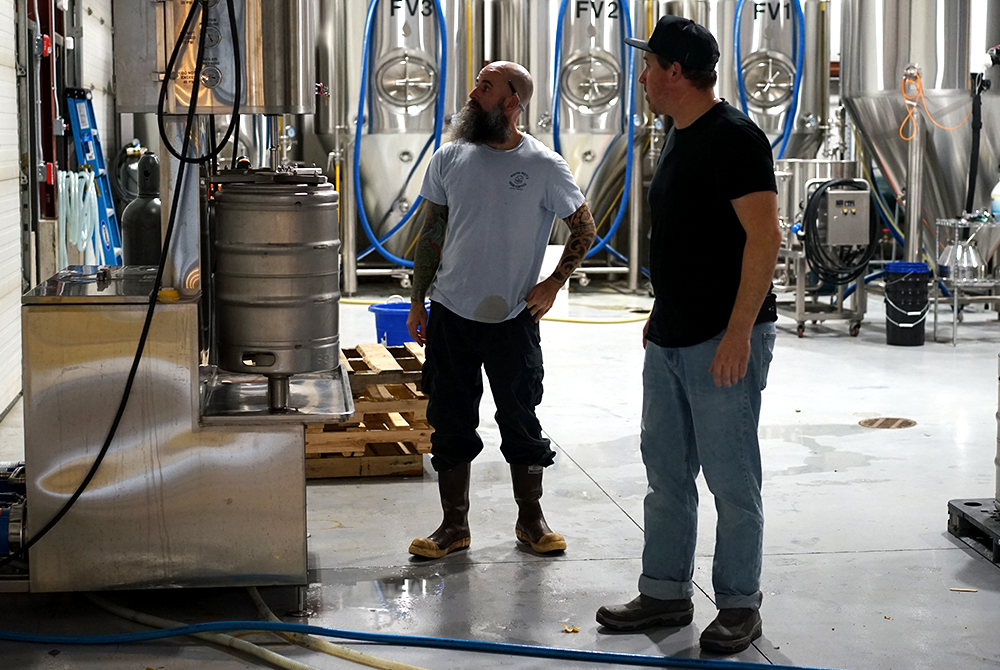
Then we still had to find a space. You’d be surprised, but there are a lot of landlords that don’t want a brewery, for whatever reason. They get scared off. Parking is always an issue. That’s something that we face a lot. You always think you’re going to have enough and you don’t. So it’s a challenge from week to week, but you know, we do the best we can to try and soften that blow a little bit.
So we ended up here. We’ve got a little over 12,000 square feet between the two buildings, and plenty of room to grow. We don’t know what that is; we’re just going to let it grow organically and see what happens. We’re not trying to flood the market with our product. All our packaged product is sold to the taproom. We do send some kegs out from time to time to local markets and other markets around the country for festivals and tap takeovers, things like that. But for the most part, everything is sold in-house here. We’ve got quite a fan base, which is really cool.
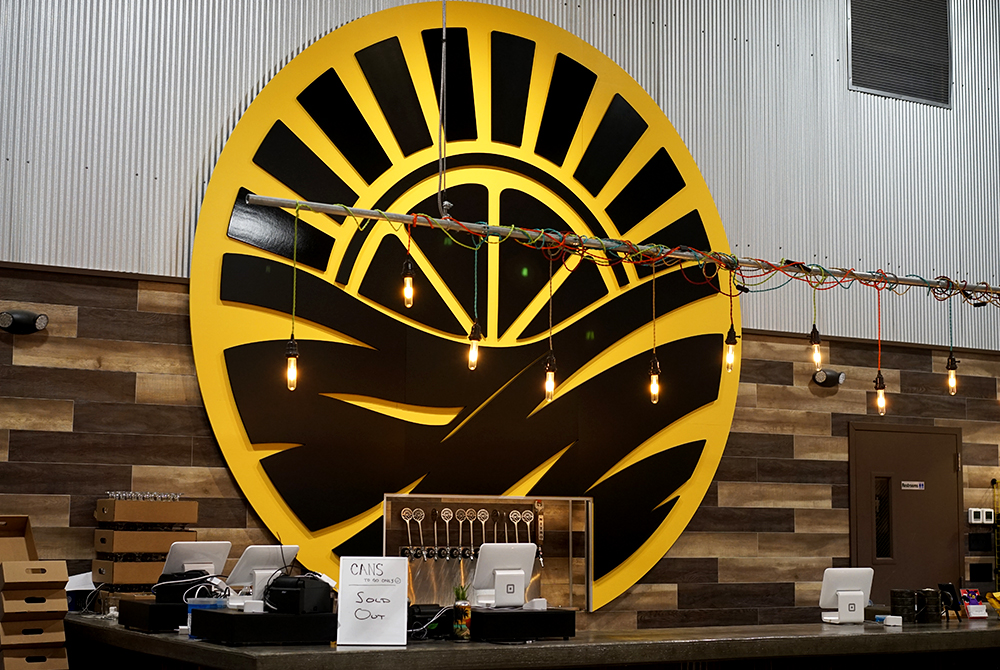
AC: Yeah, that’s really the model. Breweries want people to come to them. I think you used the word “destination” before, so for you, what makes a great destination town for craft breweries? Apart from the obvious–the space.
DF: Yeah, the space, but also proximity to the highway, the rest of the infrastructure of the town: restaurants, food, shopping, whatever. Obviously a town that’s welcoming to breweries, that starts at the management level. If they’re pro-brewery, then they’re going to make sure that the roads are kept up or they’re gonna make sure that we don’t run into any issues with permitting and licensing, things of that nature. We like the fact that there are two other breweries here, too, because again, we’re kind of a complementary brewery to them and it just gave people even more reason to visit.
AC: When you have that many breweries in such close proximity to each other, the more successful one brewery is, the better it is for all the others. But then you also have the problem of distinguishing yourself and getting people to come to you. Or maybe that’s not necessarily a problem—but how do you do it?
DF: I think we all have our own specialty. We all make different beer, which is nice because there’s something for everyone. There might be beer that we make that people like, and there might be beer that Barrel House makes that people favor. And Article 15 has their own specialty, just to name the three in this town. So there’s always something for everyone. The way we look at it is, the more beer drinkers that are coming to this area, the better for all of us.
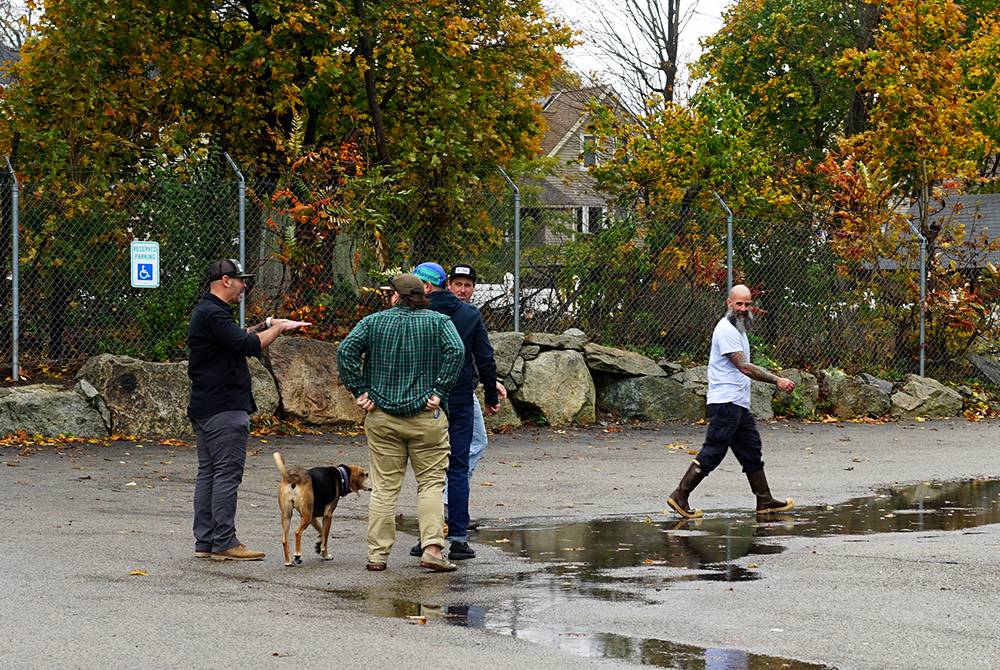
We have a stretch of around 11 breweries from Braintree to, say, the Sagamore Bridge; we call it the South Shore Beer Trail. The South Shore’s really starting to become a beer tourism destination, and we’re happy to be part of that. But we also get people in here from all over the world. I mean, we’ve had people come from Japan, South Korea and China, and Brazil, and Portugal, and Belgium, and Italy, and France—all over. It’s a neat thing. With social media nowadays, the world’s a very, very small place.
AC: It is. But that’s humbling, though.
DF: We’re just like, “Well, where’d you even hear about us?” We still look at it like we’re in the basement, but just a bigger, bigger basement—that’s what it is to us. We started off years ago doing that and getting the word out. People would come to my house and grab a four-pack out of the cooler. We couldn’t sell it, so we’d just give it away to friends, and then they would tell their friends, and they would show up, and then their friends, and it just kept compounding. Next thing you know, there were people coming up and down the East Coast like, “Hey, I heard if I go to your house, I can grab a four-pack of your beer out of your cooler?”
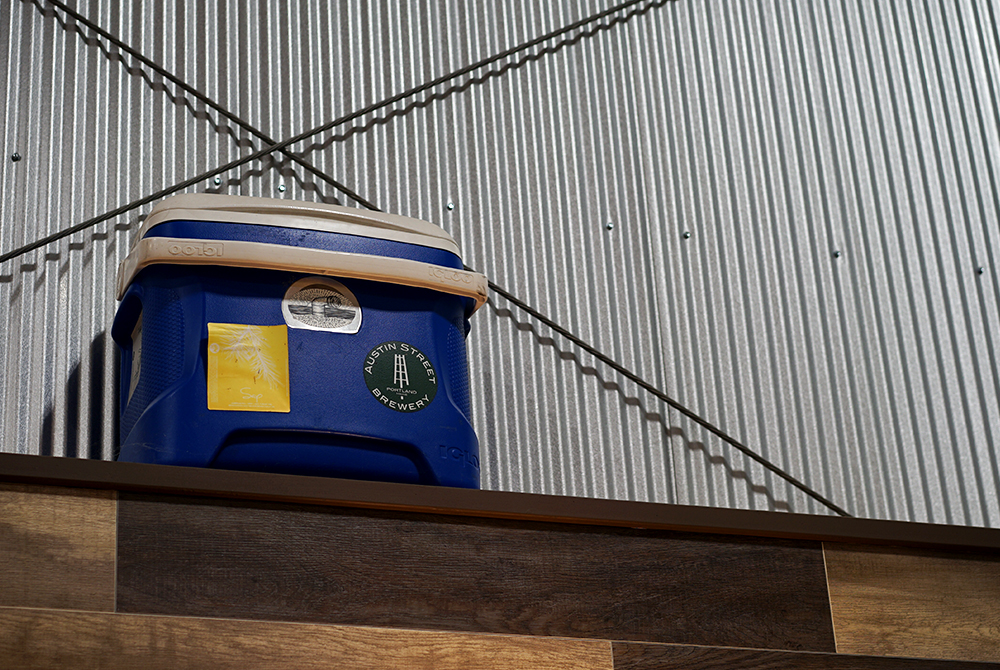
AC: What I came to know you guys for when we met at Spooky Brews is those pillowy IPAs, the stouts, and the fruited sours. Is that your focus?
DF: For the longest time it seemed like that’s all we made were IPAs, or at least that’s what we were accused of. We made other beers, but that’s where we got our notoriety from, I guess. But yeah, we’ve always made cream ales, we’ve always made stouts. We weren’t famous for them, or infamous for them, but we enjoy making them. We enjoy drinking them! I mean, we love making and drinking fruited sours and stouts. It’s always a work in progress: How do we get that viscosity of the stouts? We feel like we have it now, which is really kind of fun.
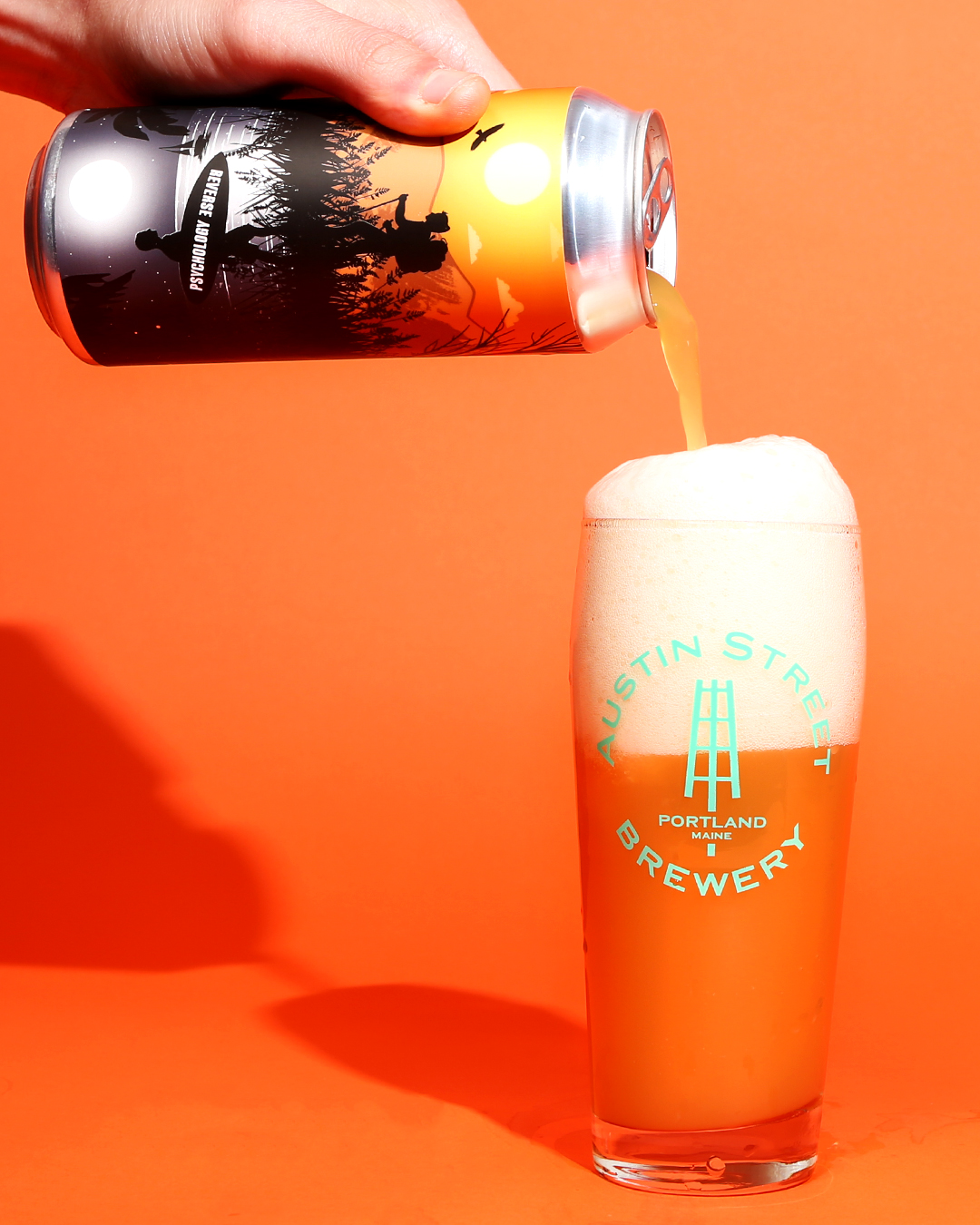
Photo by John A. Paradiso
AC: Other than the beers you choose to brew, would you say that one of the driving points of your identity is honoring the Weymouth area?
DF: I mean, certainly, they’ve embraced us and we’ve tried to embrace them right back. We love the area. It has a coastline. I live in Hull, where we initially wanted to open, and that’s a beach town. There’s no denying it. But Weymouth has beaches, and it’s got water, and it has all the same things. People say, “Well, with the name…” But we still have a coastline here!
AC: People forget about that.
DF: They do! We’re not within view of it, but we’re 10 minutes away. So, yeah, Weymouth is great. There’s a strong sense of pride here in this town, like a lot of the other South Shore towns. They’ve been very, very good to us.
AC: You were homebrewing before all this happened so this must feel like quite like the pole vault, going from there to where you guys are today.
DF: We try to keep it in perspective. In our eyes, we’re still homebrewing in a sense. It’s just on a bigger scale. We’ve always treated it that way. There’s a sense of humility there that we always want to maintain because we know we can always do a better job. We’re constantly giving each other a hard time about it. That’s just who we are, right? We have fun with it, going back to that word. It is a business at the end of the day. But we want to make an enjoyable environment for both customers and the people here. We all have regular jobs, full-time jobs, and when we come here, we want it to be somewhat of an escape from that too.
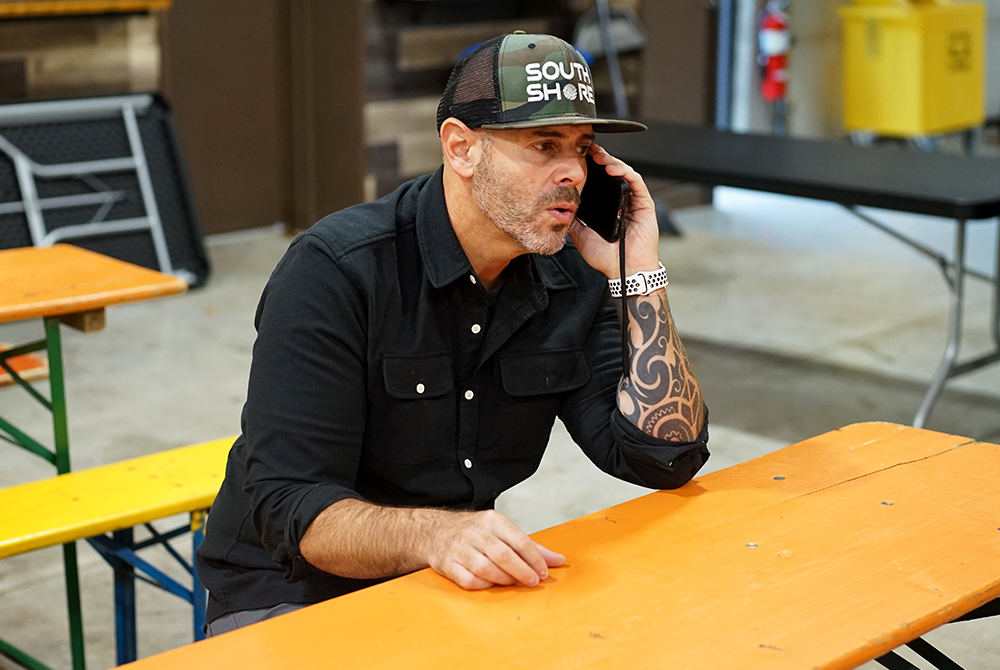
AC: That’s such a challenge, keeping yourself from feeling bifurcated because there is a line separating the two things.
DF: Yeah. I’m old. [laughs] Pardon the pun, but I’m a dinosaur in this industry. I grew up working the office job, the Monday through Friday day job. I do sales now, which has more flexibility because everything’s done via cell phone, laptop, whatever nowadays. It’s interesting to see an industry where it’s not a Monday through Friday, it’s everything but that. It’s nights and weekends, it’s holidays, it’s me at two o’clock in the morning coming up with a new idea while I’m lying in bed and putting pen to paper so I don’t forget it by the morning. But it’s enjoyable. I mean, it’s our business. We’re doing it for our own greater good and not just someone else’s.
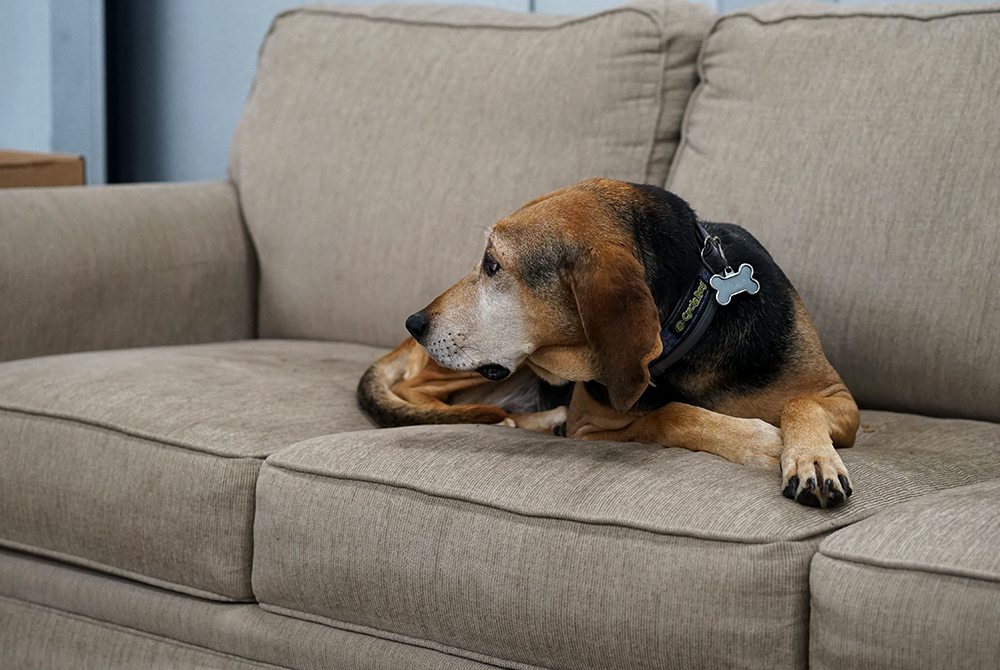
AC: Understanding that sense of doing something for the joy, this must have been quite a year for you.
DF: It’s been surreal, and crazy, and stressful, and fun, and amazing all at once. We were in the process of opening a brewery, and I was having a baby, and having this go on at the same time, it’s a lot. We have a good team. I’m lucky to have the partners that I do, and we all have our roles and everybody just runs with what they need to do. That’s huge. I couldn’t do it otherwise.
AC: So if we’re looking for greater meaning when we talk about beer, it’s people.
DF: It’s people. And passion. Absolutely. And even the industry alone, as amazing as this is, you go to another brewery and as we travel and do collaborations and events and things like that, we meet so many amazing, helpful people. Because, who are we? We’re nobodies, right? We’re the new kid. But people just put their arm around your shoulder, like, “Alright, what can we do to help you out?” That’s…that’s an awesome, awesome feeling, as corny as it sounds. You learn so much. Every day we learn something new. I don’t have a false sense that I know everything. We know very little compared to what we could know. And we’ll get there. But if we ever stop learning, I think that’s when we run into problems, right?
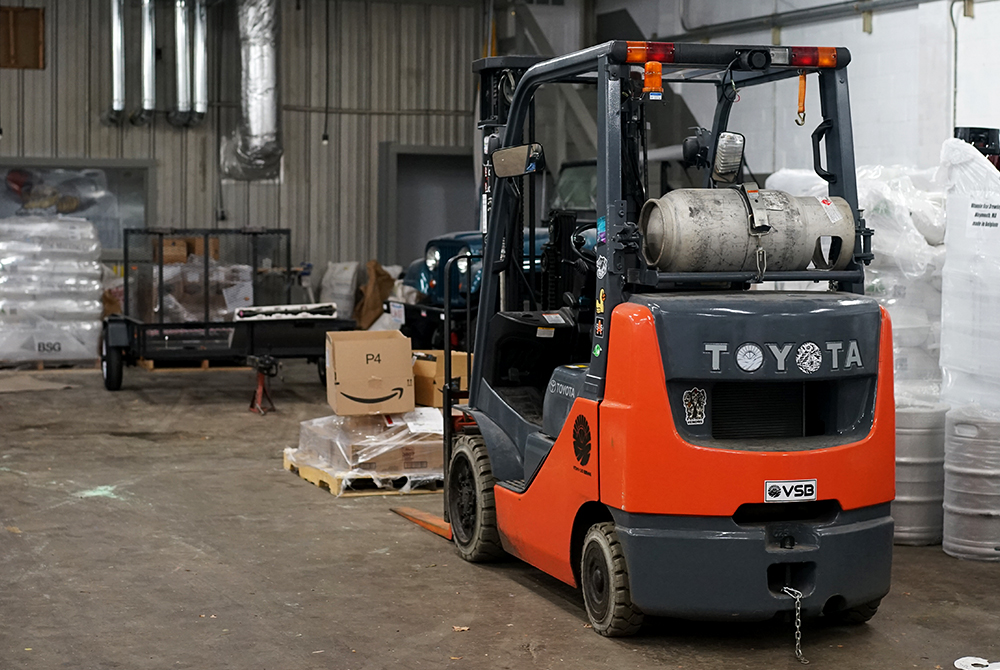
AC: Well, the day you stop learning, that’s the day you become an egomaniac.
DF: Right! And complacent, and that’s not what we want to do. We always want to push the limits and try new things and improve.
AC: But pushing the limits and creating something really new—that’s hard!
DF: The book is gone. Throw the book out the window. Don’t get me wrong, I love traditional beers, but nowadays, do you want to do fun beers? Have at it and see how far you can go. We’re not the only ones doing it, and we’re probably more conservative with ours then a lot of people. But we want that softness in our beer. We want people to really know when they have one of our beers, whether it’s a stout or an IPA or a sour or whatever. They’re drinking Vitamin Sea beer.
Liked this article? Sign up for our newsletter to get the best craft beer writing on the web delivered straight to your inbox.

